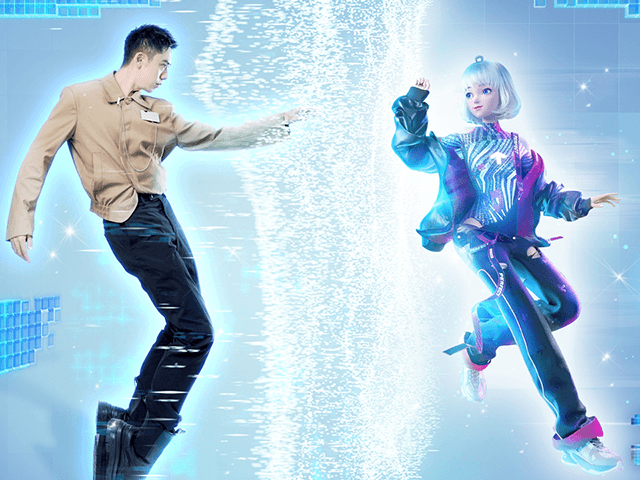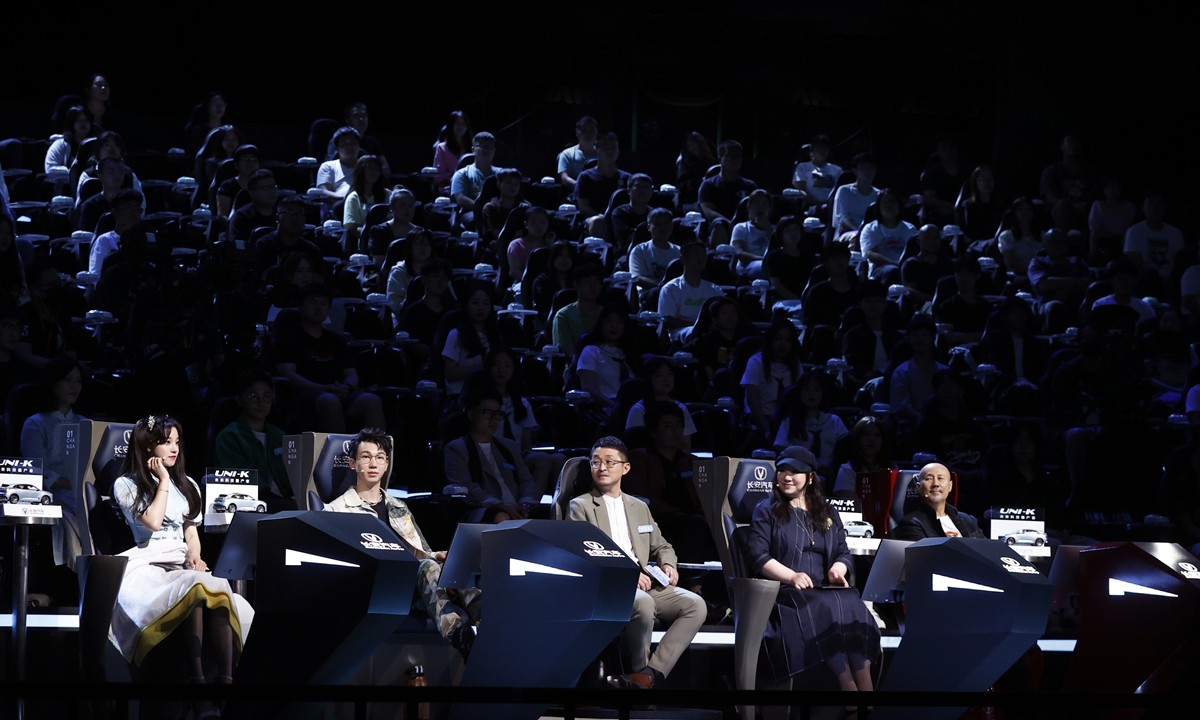China’s state-owned Jiangsu Satellite TV has a new talent competition called “2060” in which the competitors are computer-generated avatars controlled by virtual-reality (VR) headsets.
The producers hope the show is successful enough to buy VR gear for all 200 members of the live audience, so they can experience the entire performance in virtual reality.
This raises the question of why a “live” audience should be there at all, or why such a program should be broadcast on television instead of streamed into VR goggles for the folks at home, but that could be the next step in the process.
The producers of “2060” explained to the Chinese Communist Party’s (CCP) Global Times newspaper that while they want to push the boundaries of technology and attract tech-crazy young viewers, the show’s most important goal is to “popularize China’s outstanding original animated imagery so that they can be exposed to more people.”
“It is a platform to expose and popularize these images on a large scale. Next we have the Chinese animators, who have mastered top techniques and ideas, equal to top animators overseas in terms of artistry and technology,” said producer Wang Xi.
The Global Times noted many of the “V-LIfe” virtual reality characters feature “Chinese elements” like “the color red, or a lion’s head from the traditional lion dance.”
Most of them have the doll-like features and huge eyes typical of characters from Japanese animation, the market China would clearly like to break into – but then there’s TV Chicken, a character that looks like a chicken with a television set embedded in its body. TV Chicken raps. Japan’s anime studios can probably rest easy for a while longer.
China has been building its animation industry over the past decade, including some partnerships with American studios like Abominable – a children’s film about yetis (the “abominable snowman” of Western yore) that wound up mired in controversy because it included communist propaganda about Beijing controlling the entire South China Sea.
ScreenDaily noted in 2019 that Chinese animation lags behind because it is a tough sell to local audiences. Unlike the Japanese, who long ago embraced anime as a medium for telling stories to all age groups, Chinese audiences tend to see animation as primarily for children – and the children are too busy in school to see a lot of movies.
The producers of “2060” touted their show to the Global Times as a targeted effort to get the coveted 18-24 audience interested in animation. Hollywood has produced some huge animated blockbusters, from Disney’s animation renaissance in the 90s to the modern classics from Pixar, which Disney now owns.
Nine animated films from the 2010s made over a billion dollars worldwide, and nine more have come pretty close to a billion. Even in the gloomy box-office doldrums of the pandemic era, three of the top 10 movies were animated, and the main characters in two of the others were animations mixed with live actors. Computer animation is obviously a huge element of big-budget “live action” films, and occasionally computer-generated avatars of long-lost actors pop up in modern movies.
The CCP is eager to demonstrate that it can match or beat Hollywood for big movies, perhaps to put American producers on notice that they need China more than China needs them – so they had better think long and hard before making films that violate the CCP’s speech codes.
Animation is one genre where China is not a heavyweight competitor yet. V.R. puppets on a talent show might not be bad training to compete in an arena where actors can land plum supporting roles in major motion pictures years after they die, and one of the highest-grossing actors of all time hardly ever appears in his own movies. Also, the CCP has noticed that virtual-reality puppets are easier to control than human actors, and easier to delete if they become troublesome.


COMMENTS
Please let us know if you're having issues with commenting.